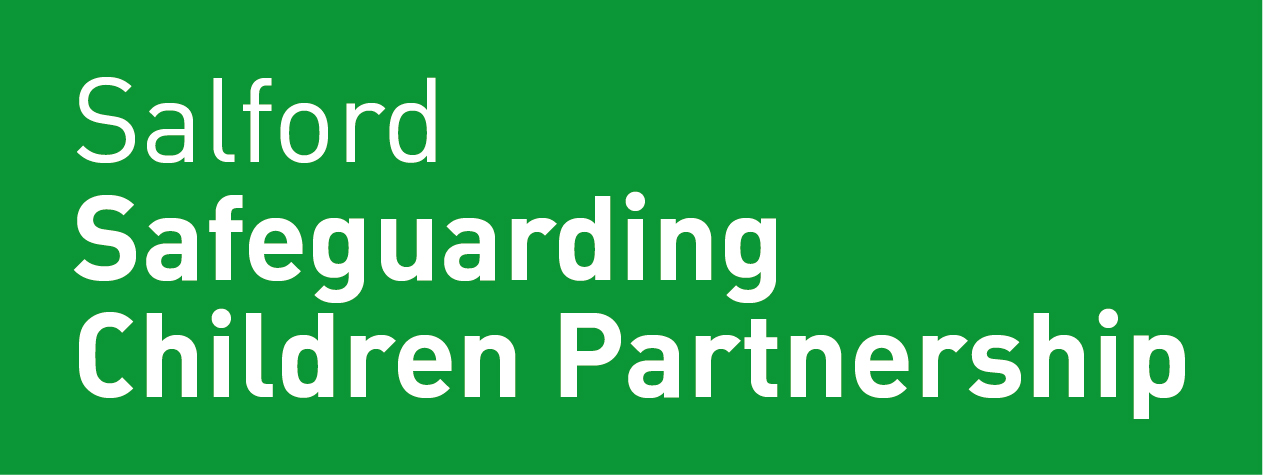Online and E-safety
Online risks can impact severely on a children's self-worth, confidence, and academic performance. Children and young people should feel able to go online safely however some risks are present.
It’s important for parents and carers to be aware of these risks and take proactive steps to educate and protect their children online.
What young people in Salford have told us:
"Adults don't understand how online communities work" (A, 2022)
"Nothing is gone forever [online] and damage will stay with you" (Anon, 2022)
"I feel adults misunderstand that everyone online is a scammer, groomer or criminal" (J, 2022)
Here are some tips to support you in keeping your child safe in the digital world:
Keeping safe online
- Know the devices: Ensure control settings are correctly set to keep personal information private.
- Understand the risks: Cyberbullying, blackmail, grooming, sexting, inappropriate content, privacy breaches, social media, gaming addiction, and misinformation.
- Stay informed: Use resources designed for parents to stay updated on online safety.
- Conversations: Talk regularly about the online. Get to know what your child is doing, who they are talking to and what content they are viewing.
Recent online risks
- Image Sharing: Pressure to share intimate images.
- Online Exploitation: Adults posing as children to groom young people.
- Violent, sexual, or extremist material.
- Cyberbullying: Cyberbullying is the use of technology to harass, threaten, embarrass, or target another person.
- Misinformation: Exposure to fake news and false information.
- Sextortion: You can find out more here.
- Blackmail: In relation to Sextortion, CEOP have this guidance.
Positive digital parenting
- Communicate: Discuss online activities and concerns.
- Set rules: Establish clear guidelines for internet usage.
- Model behaviour: Demonstrate good online practices.
- Use controls: Implement and regularly check parental controls.
- Stay educated: Keep up with online trends and risks.
- Promote critical thinking: Teach children to recognize fake news and scams.
- Balance activities:
- ISP filtering: Most internet service providers have built in safety measures. You can find out more here.
Safe online gaming
- Understand the games: Know the content, age ratings, and chat functions.
- Set limits: Define time restrictions and appropriate games.
- Monitor interactions: Ensure your child knows not to share personal information.
- Encourage reporting: Teach them to report any inappropriate behaviour.
- Play together: Engage with your child's gaming to understand their experiences.
Safety tips
- Use the latest anti-virus and spam protection.
- Use secure websites for transactions.
- Keep personal information private.
- Beware of scams and phishing emails.
- Know what to do if a problem arises.
- Have fun and explore online activities together.
Resources for parents
- CEOP Education
- Common Sense Media
- Child Net
- NSPCC Online Safety
- Barnardos Online Safety
- Parental Guides
- UK Safer Internet Centre
While there are huge benefits to being online to stay connected to family and friends, many parents/carers feel concerned about the activities and content their children are accessing. This Government guidance outlines resources to help keep children safe from different risks online and where to go to get support and advice can be found here.
The UK Safer Internet Centre have created Tips for Parents and Carers about how to spot, respond to and report all types of scams online. Scams can take many forms and may target anyone, including young people. Use these top tips to keep you and your loved ones safe online.
For immediate help contact Salford Children's Services on 0161 603 4500 from 8.30am to 4.30pm. If you need to speak to somebody about your concern outside these hours, please call the Emergency Duty Team on 0161 794 8888. You can also make a referral to Salford Children's Services at Worried about a child•Salford City Council
You can contact the NSPCC Helpline by calling 0808 800 5000, emailing help@NSPCC.org.uk or completing their report abuse online form.
Children and young people up to 19 years can seek help and support from ChildLine at 0800 1111 anytime.
Please note that we cannot be held responsible for the content of external websites.
Latest news
Details of all the latest news from the Salford Safeguarding Children Partnership.

